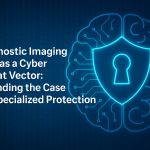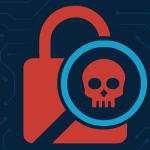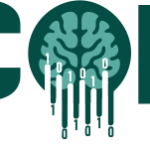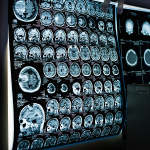The importance of cybersecurity within the healthcare sector is increasingly critical. According to International Data Corporation (IDC), healthcare organizations managed approximately 30% of the world’s data in 2018, a figure projected to rise to 36% by 2025. This substantial data management stresses the urgent need for stringent cybersecurity measures. Moreover, the 2023 BlackKite report indicates that nearly 35% of all third-party breaches in 2022 targeted the healthcare sector, marking an increase from the previous year and highlighting its vulnerability.
Financial Impact of Data Breaches in Healthcare
The IBM/Ponemon “Cost of a Data Breach Report 2023” states that the financial repercussions of healthcare data breaches have surged by 53.3% since 2020. The sector continues to report the highest costs per data breach, averaging $10.93 million in 2023. These figures underscore the high stakes of maintaining patient data security amid a complex regulatory landscape.
Evolving Threat Landscape
The threat landscape in healthcare is diversifying and intensifying, with traditional vectors such as phishing and compromised credentials now joined by cloud misconfigurations and business email compromises. The IBM/Ponemon 2023 report also emphasized significant concerns over zero-day and known, unpatched vulnerabilities, accounting for more than 5% of breaches. Additionally, while less frequent, insider threats result in the most severe financial impacts when they occur, underscoring the need for comprehensive security strategies that address both internal and external risks. These expanding threats highlight the importance of security measures that extend beyond traditional defenses, emphasizing timely patch management and sophisticated threat detection.
DICOM Vulnerabilities: Securing Medical Imaging Data
Digital Imaging and Communications in Medicine (DICOM) is the standard protocol used in medical imaging and is ubiquitous across the healthcare sector. DICOM files, which contain both detailed images and sensitive patient information, are indispensable for medical diagnostics and patient care. Given their critical nature and the sensitive data they hold, these files are prime targets for cyber threats. The complex structure of DICOM files means that traditional security measures, such as antivirus tools, are often inadequate for protecting them. These files can be exploited as vectors for cyber threats, potentially leading to significant disruptions in operations, data breaches, and even reputational damage to healthcare organizations. Therefore, ensuring the security of DICOM files requires specialized solutions designed to detect and protect against malicious content that may be embedded within these files by both internal and external cyber threat actors.
SecureDICOM: Advanced Protection for DICOM Files
SecureDICOM by WetStone Labs is designed to protect these vital DICOM files within healthcare environments. It detects and analyzes malicious content embedded within the complex DICOM file structure — potentially resulting from unauthorized manipulations by malware-compromised workstations, vulnerable applications, external attackers accessing inadequately secured Picture Archiving and Communication System (PACS) servers, threats from malicious insiders, or insecure file-sharing practices.
Upon detecting potentially harmful content, SecureDICOM promptly activates protocols to report and isolate the compromised file, thus preventing the activation or spread of embedded malware in line with organizational security policies. By aligning with the NIST Cybersecurity Framework (CSF), SecureDICOM enables healthcare organizations to incorporate targeted protective measures into a comprehensive cybersecurity strategy, safeguarding sensitive medical imaging data against sophisticated cyber threats. This specialized focus significantly enhances the security posture of healthcare providers.
Conclusion
The changing threat landscape in healthcare, characterized by a mixture of traditional and sophisticated cyber threats, demands an advanced and nuanced approach to cybersecurity. As healthcare organizations manage an increasing volume of sensitive data, the stakes for protecting this information have never been higher. Recent reports by IBM/Ponemon and BlackKite highlight the severe financial and reputational repercussions of data breaches, underscoring the urgent need for effective security measures tailored to the unique challenges of the healthcare sector.
In response to these challenges, SecureDICOM by WetStone Labs offers a specialized solution tailored to address the vulnerabilities of DICOM medical imaging files. By focusing on detecting files embedded with malicious content, promptly quarantining them, and alerting cybersecurity personnel, SecureDICOM not only prevents the potential exploitation of healthcare data but also reinforces the overall resilience of healthcare IT systems against cyber threats. The alignment of SecureDICOM with the core functions of the NIST Cybersecurity Framework facilitates a strategic approach that conforms to regulatory standards and best practices, enhancing the ability of healthcare organizations to respond dynamically to evolving cybersecurity threats.
The adoption of specialized security solutions like SecureDICOM is crucial for healthcare providers. By implementing such advanced protective measures, healthcare organizations can ensure the integrity of medical imaging data and proactively mitigate these risks before they can disrupt operations or result in data breaches – ultimately, strengthening the trust patients place in their healthcare providers. As the healthcare sector continues to evolve, the role of comprehensive cybersecurity strategies becomes integral in safeguarding the future of healthcare delivery.
For additional information on how SecureDICOM aligns with the core functions of the NIST CSF — Identify, Protect, Detect, Respond and Recover, see WetStone’s LinkedIn article, “Enhancing Healthcare Cybersecurity: Aligning SecureDICOM with the NIST Cybersecurity Framework” at: https://www.linkedin.com/posts/wetstone-technologies_nist-csf-cybersecurityframework-activity-7191942720020492290-bECg/
For more information about Wetstone, SecureDICOM, and our other cybersecurity and digital forensics solutions, please contact us at sales@wetstonelabs.com. Visit our website at www.wetstonelabs.com and follow our LinkedIn page at www.linkedin.com/company/wetstone-technologies.
WetStone Labs, WetStone Technologies, and SecureDICOM are trademarks of WetStone Labs, Inc. All other product names mentioned herein are used for identification purposes only and may be the trademarks of their respective manufacturers or publishers.






